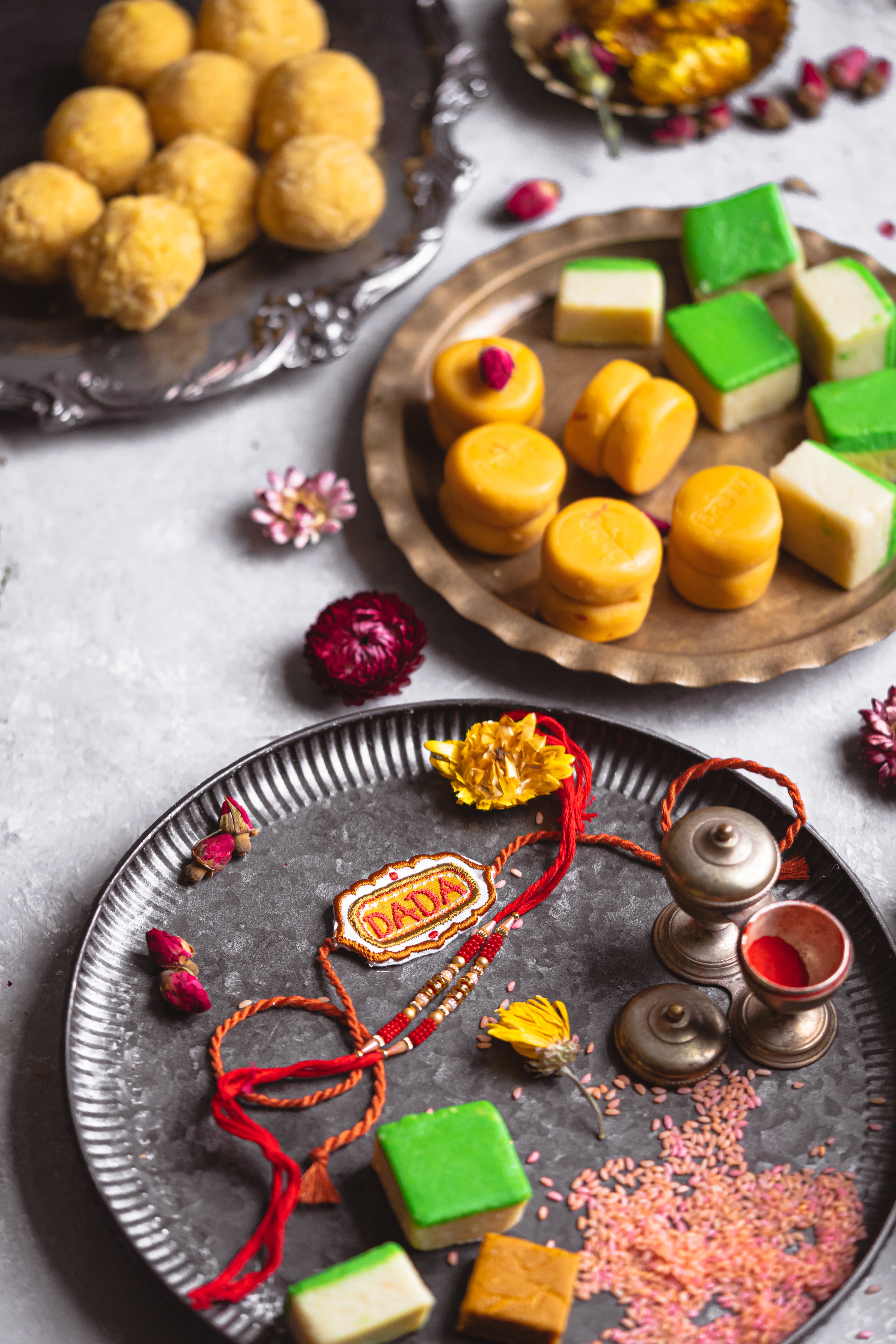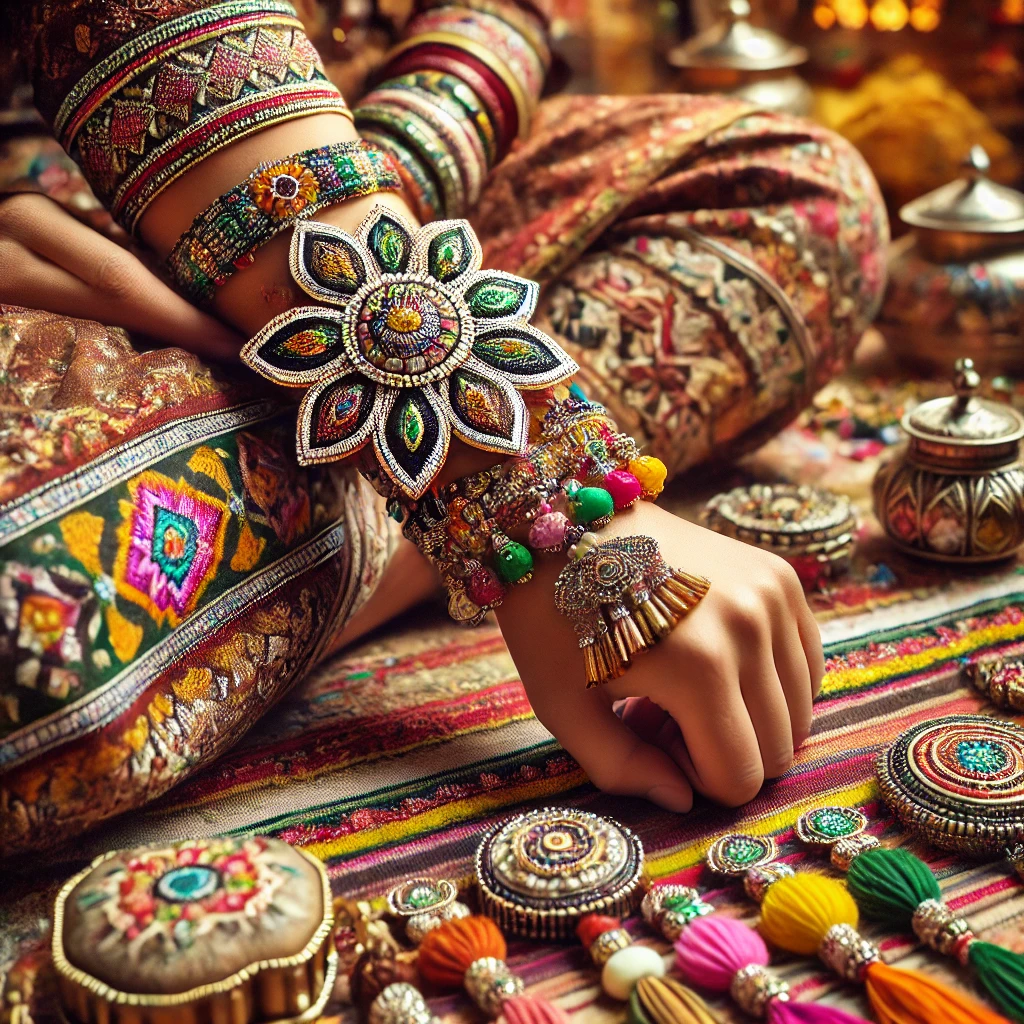When is Raksha Bandhan 2025? Date, Significance & How Schools Celebrate
Raksha Bandhan is a special Indian festival that celebrates the love and care between brothers and sisters. In 2025, it will be celebrated on 9th August. Families, schools, and communities come together to enjoy this day.
The festival teaches us important values like love, trust, respect, and unity, which are especially meaningful for students. It helps young people understand the importance of strong and caring relationships.

Historical Context and Cultural Importance
Origins of Raksha Bandhan are found in ancient Indian epics and scriptures such as the Mahabharata and Bhavishya Purana. Notably, the legend of Draupadi tying a protective thread on Lord Krishna’s wrist during a moment of crisis illustrates the festival’s essence—a pledge of care, safety, and lifelong support.
Another tale speaks of Queen Karnavati of Chittor sending a rakhi to Emperor Humayun as a request for protection, transcending even bonds of blood.
The name ‘Raksha Bandhan’ itself translates to “the bond of protection.” This annual event on Shravan Purnima builds a culture of kinship, care, and trust that extends even to those beyond one’s immediate family.
Traditions and Rituals of Raksha Bandhan
At the heart of Raksha Bandhan lies the ritual of the rakhi—an often colorful, decorated thread tied by a sister on her brother’s wrist. The ceremony typically begins with prayers and aarti, followed by the rakhi-tying and the exchange of sweets and gifts. Brothers vow to safeguard their sisters, while sisters wish for their brothers’ well-being and success.
- Rakhi Styles: From simple threads to intricately crafted designs
- Regional Variations: In Rajasthan, women tie Lumba Rakhi on their sisters-in-law’s bangles, honoring extended bonds

- Community Significance: Some schools and groups encourage tying rakhis to soldiers, teachers, or even to symbolize care for the environment.
- Offerings and Prayers: Many states, such as Maharashtra, combine the festival with local prayers for prosperity, agricultural abundance, and the monsoon’s arrival.
The festival’s inclusiveness is also seen in communities where rakhis are exchanged irrespective of religion or family, reflecting India’s spirit of unity and harmony.
How Schools Celebrate Raksha Bandhan
Schools play a key role in nurturing and passing down Raksha Bandhan’s values to the next generation. Educational institutions infuse the celebration with fun learning activities that deepen cultural appreciation:
- Rakhi-making competitions using recycled materials
- Storytelling sessions on the festival’s origin and moral lessons
- Role-plays and skits reenacting legendary stories
- Drawing, art, or essay competitions themed around sibling love and unity
- Tying rakhis to soldiers, teachers, or as part of eco-friendly drives
- Themed assemblies focused on “the importance of promises and care”
These activities encourage teamwork, creativity, and foster respect and empathy among students—key skills for holistic development.
Festival Takeaways: Educational Value and Life Lessons
Beyond celebration, Raksha Bandhan is a living lesson in responsibility, understanding, and shared happiness. The festival teaches:
- The importance of trust and keeping promises within families
- Respect for all—extending care beyond immediate siblings
- Strength through unity and cooperation
- Appreciation for India’s diverse traditions and customs
- The power of symbolic gestures in forging meaningful bonds
Participating in Raksha Bandhan allows students to practice empathy, celebrate cultural diversity, and experience the joy of giving and caring—values that empower them as responsible citizens.
Vedantu’s Connection: Deepening the Celebration
Vedantu recognizes the educational potential of Raksha Bandhan and offers a variety of engaging activities online to supplement school celebrations. In 2025, students can:
- Join creative essay-writing workshops about Raksha Bandhan
- Participate in live story-telling sessions discussing its historical stories
- Explore paragraph and speech resources on Raksha Bandhan for school presentations
- Download free worksheets and creative art challenge packs
- Learn about the interconnectedness of Indian festivals via EVS celebrations resources
Through expert-curated materials and interactive activities, Vedantu helps learners reflect on Raksha Bandhan’s meaning, while connecting classroom lessons to everyday experiences.
Take Part: Activity & Learning Suggestions for Students
- Create your own rakhi using natural or recycled materials at home
- Write an essay or a short poem about the special bond of Raksha Bandhan
- Interview family members about their childhood Raksha Bandhan memories
- Tie a rakhi to community helpers (teachers, security guards, doctors) to spread gratitude
- Share your celebrations with Vedantu’s online learning community
Sharing these experiences not only enhances festival enjoyment but also strengthens understanding of cultural heritage and the importance of compassion.
Conclusion: Honoring Tradition, Fostering Togetherness
Raksha Bandhan 2025 is more than an occasion—it's a timeless reminder that caring for one another builds strong families and inclusive communities. As you celebrate with your loved ones and classmates, let the festival inspire you to carry forward its values of empathy, responsibility, and unity in every sphere of life.
Discover more resources, festival stories, and activity ideas on Vedantu’s English learning section and our collection of student essays for deeper cultural learning throughout the year.
FAQs on Raksha Bandhan Celebration: Meaning, History and School Activities for Students
1. What is Raksha Bandhan and why is it celebrated?
Raksha Bandhan is a traditional Indian festival that celebrates the special bond between brothers and sisters. On this day, sisters tie a sacred thread called Rakhi on their brothers' wrists, and brothers promise to protect and support their sisters. The festival symbolizes love, responsibility, and unity among siblings and families.
2. How is Raksha Bandhan celebrated in schools?
Raksha Bandhan is celebrated in schools with various activities to foster teamwork and value education. Common celebration ideas include:
- Rakhi making competitions
- Speeches and essay writing on Raksha Bandhan
- Group songs, dances, and skits about sibling bonds
- Drawing and poster competitions
- Tying rakhis to classmates or community helpers to promote unity
3. What is the history behind Raksha Bandhan?
The origin of Raksha Bandhan comes from several legends:
- In the Mahabharata, Draupadi tied a cloth to Krishna's wrist for protection, and he promised to protect her.
- Rani Karnavati of Mewar sent a Rakhi to Emperor Humayun for help.
4. What is the meaning of the word 'Raksha Bandhan'?
'Raksha Bandhan' is a Sanskrit term where 'Raksha' means protection and 'Bandhan' means bond. Together, it signifies the bond of protection shared between siblings.
5. Which date is Raksha Bandhan celebrated in 2025?
In 2025, Raksha Bandhan will be celebrated on 9th August as per the Indian calendar (Shravana Purnima).
6. What are the main rituals of Raksha Bandhan?
The important rituals of Raksha Bandhan include:
- Sisters prepare a Rakhi thali with rakhi, sweets, diya, kumkum, and rice
- Sisters tie the rakhi on brothers' wrists
- Brothers give gifts and promise protection
- Families share sweets and blessings
7. Can Raksha Bandhan be celebrated with friends or other people?
Yes, Raksha Bandhan is now celebrated beyond siblings. Many people tie rakhis to friends, classmates, neighbors, or even community helpers like soldiers and police officers to spread unity, gratitude, and social harmony.
8. What is the moral message of Raksha Bandhan for students?
Raksha Bandhan teaches values such as love, respect, duty, and unity. Students learn to care for and protect each other, which helps build empathy, friendship, and responsibility both in families and in school life.
9. Suggest some creative Raksha Bandhan celebration ideas for school children.
Some creative ways to celebrate Raksha Bandhan at school include:
- Organizing eco-friendly rakhi making workshops
- Hosting essay and speech competitions on Raksha Bandhan
- Drawing and poster contests about the festival's significance
- Inviting students to recite poems or perform short skits
- Tying rakhis to community helpers or friends of different cultures
10. How can I write a short essay on Raksha Bandhan for my class?
Start your essay with an introduction about the festival. Next, describe:
- What Raksha Bandhan is and why it is important
- Main rituals and customs
- A story or significance from history
- How you or your school celebrates it
11. What activities do CBSE schools organize on Raksha Bandhan?
CBSE schools usually organize rakhis making contests, assemblies with speeches and skits, drawing or poster competitions, and sometimes encourage students to tie rakhis to teachers or social workers, highlighting value education and social responsibility.
12. Is Raksha Bandhan mentioned in NCERT textbooks or syllabus?
Yes, the Raksha Bandhan festival and its stories are discussed in NCERT textbooks for primary and middle school levels, especially in Hindi, Social Studies, and Moral Science lessons to teach students about Indian festivals, values, and traditions.







